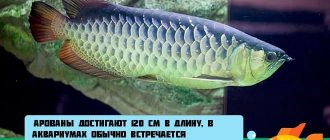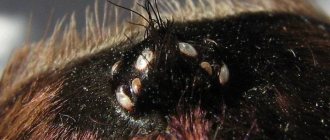What did Pavlov do?
The name of Ivan Petrovich Pavlov is widely known not only in Russia, but also among foreign enlightened minds. Dates of life: September 26, 1849 – February 27, 1936. This is a scientist who devoted his life to science, mainly physiology, and conducted many different studies on this topic. Meanwhile, Dr. Pavlov became famous due to his experiments on animals and his significant contribution to the development of reflexology.
This is what Pavlov's dog looks like in the house-museum of the famous scientist
For your information! For most of his career as a scientist, he studied behavioral reactions, trying to understand by what principles the body operates and whether they can be influenced.
The academician achieved the greatest success in his work on the physiology of digestion, which became a step forward for world science, and brought the author of the study a Nobel Prize at the beginning of the 20th century. For 10 years, Pavlov, through experiments, tried to reproduce one of the complex operations on the body - obtaining a fistula of the gastrointestinal tract. To do this, Pavlov conducted experiments on dogs, changing the functioning of their internal organs, sewing tissues together, and inserting special tubes. To achieve success, hundreds of animals were sacrificed to science.
Having achieved his goal, Ivan Petrovich delivered an abstract in Madrid, in which he outlined in detail the results of his research. Based on the scientist’s achievements, the science of physiology was re-created and its principles were revised.
Practical use
Currently, knowledge about reflexes is widely used not only in medicine, but also in cynology, training and even agriculture.
- Training
. Dog handlers and trainers use the same principle as scientist Pavlov’s laboratory assistants in experiments on animals - they teach animals to carry out various commands and the animals obey impeccably, because in the end they will receive food. - Medicine
. Pavlov's experiments with dogs helped to understand in which part of the brain a signal arises to trigger a particular action, which gave a huge impetus to the development of neurosurgery and other branches of medicine. Thanks to Ivan Petrovich’s discovery, doctors every day help many patients with central nervous system disorders recover and live a full life. - Agriculture
.
Farmers often use classical conditioning
to protect livestock from predators. For example, they leave poisoned animal meat overnight in a pasture area. The drug introduced into the meat does not kill the predator, but makes him feel unwell; once he has tasted such food, he will no longer dare to attack the animals, because the meat of those grazing on this pasture will be associated with illness.
Despite his experimental activities, Ivan Petrovich loved his experimental dogs very much, he called them perfect creatures and deeply mourned every life lost during the experiments
.
Thanks to the discovery of I.P. Pavlov, more than a hundred different effective methods for treating many ailments associated with central nervous system disorders have been developed. In the USSR, in gratitude to the animals who suffered in the name of science, a monument to Pavlov’s dog was erected. Today science has stepped far forward, but, undoubtedly, the scientist’s work remains one of the greatest discoveries in medicine.
The essence of experiments and experiences
Retrievers: what types are there and what is it?
Pavlov owned an innovative method for those times for collecting pure gastric juice from the body. To do this, the scientist had to stitch together separate areas of the skin and mucous membrane. The juice was collected using metal tubes, which were inserted into the gastrointestinal tract and tightly closed with plugs. As a result of the experiment, the academician learned to obtain the substance in any part of the digestive tract.
Note! Pavlov's experiments made it possible to control the release of gastric juice and prevent its release in large quantities, which could provoke destruction of the abdominal wall and intestines.
The doctor is also known for his experiments, which became part of science under the name “imaginary feeding.” The essence of the experiment is as follows: the dog’s esophagus is surgically cut, thereby preventing its connection with other organs of the gastrointestinal tract. This ensured that food did not penetrate into the stomach, and juice for its digestion continued to be produced.
Thanks to the experiments carried out by Russian scientists, physiology, despite its centuries-old existence, was actually reinvented and it was Pavlov who became the father of this science.
Imaginary feeding - one of the experiments of Academician Pavlov
What are unconditioned reflexes
This term owes its appearance to the research of Ivan Petrovich. He devoted more than 30 years of his life to the study of the higher nervous activity of organisms. The principles formed by the academician formed the basis of the science of behavior.
Clicker for dogs: what is it and what is it for?
An unconditioned reflex is usually called the reaction of an individual to various stimuli, which is laid down at the genetic level. This means that a person or animal is trained from birth to a certain behavior, which is controlled by the nervous system and does not depend on anyone’s desire. Examples of how an unconditioned reflex manifests itself include withdrawing a hand from excessively heated objects (boiling kettle, stove).
The significance of such reactions for the body is obvious - they help protect the individual, warn it about what factors can cause serious harm and even lead to death. The “trick” of unconditioned reflexes and their main difference from conditioned ones is that they are inherited. They remain for life and the individual does not need to be retrained each time.
Note! Unconditioned reflexes are vital and are observed in all representatives of the class mammals.
The presence of innate stereotypical reactions was proven by Pavlov when collecting gastric juice. He traced the relationship between giving food to an animal and releasing a substance that helps digest it. The presence of the same reaction in humans and many other individuals suggests that the academician’s research is portable and suitable for various organisms.
Failed scenarios
The fate of his childhood moved Vanya Pavlov like a blunt round saber.
Here and there. He was to become a village priest, repeating the fate of several of his relatives. All of them, as if by choice, are strongmen, jokers, fist fighters. But apples intervened in his life.
It would seem that what is fateful about apples? Yes, in general, nothing, unless you lay them out to dry on a high platform and then fly off the stairs onto the stone floor. After this event, Vanya, as they say, began to melt before our eyes. I began to sleep poorly, lost my appetite, and lost noticeable weight.
He had to die in early childhood, because his parents did not recognize anything other than folk remedies.
But the abbot of the Trinity Monastery happened to be visiting the Pavlovs, who took pity on the boy and took him to the monastery, where he was, in fact, brought back to life.
The guardian gave Vanya a collection of Krylov’s fables, and this book lay on the academician’s desk throughout his life. The researcher was sentimental in his own way.
He was supposed to become an exemplary priest, pure in soul and noble in thoughts. Pavlov graduates from the Ryazan Theological School and enters the Ryazan Theological Seminary. But fashionable books interfere with his life. Sechenov, “Reflexes of the brain.” Turgenev, "Fathers and Sons". Belinsky, Dobrolyubov, Herzen.
Ivan Petrovich recalled: “Even now, as if alive, there is a scene before my eyes, how several of us, seminarians and high school students, in a dirty, cold autumn, stand for an hour in front of the locked door of a public library to be the first to grab a book of “Russian Word” with an article by Pisarev "
Pavlov no longer wants to study at the seminary. He wants to cut open frogs.
Development of classical conditioning theory
Halter for dogs: what is it and what is it for?
The name of the famous Russian physiologist is also associated with a method that allows one to train a person or animal to react in a certain way to a previously neutral object or phenomenon. It is called classical conditioning. With its help, Pavlov and his dogs proved the existence of conditioned reflexes that can be developed by repeating an action many times under the same conditions.
For your information! Conditioning occurs through reinforcement - positive or negative.
The essence of the doctor's experiment was to develop the animal's reaction to light. It was held in the 1900s and proceeded as follows:
- A dog was adopted that had previously reacted neutrally to lighting. At the same time, she had an unconditioned reflex - salivation at the sight of food.
- The bowl was placed in the window. It also contained a light bulb. When the light came on, the dog was given meat powder, which caused a violent reaction.
- The actions were repeated several times in the same sequence.
- At a certain moment the light came on, but no food was given out. Despite this, the dog was observed to be drooling.
Pavlov proved the existence of conditioned reflexes through an experiment with a lamp
Note! Conditioning is used extensively in animal training. The effect of this method also appeared during experiments with people.
The essence of developing a conditioned reflex according to Pavlov’s method
To carry out Pavlov's famous experiment, it was required:
- Test subjects (dogs);
- An unconditioned stimulus that stimulates the production of saliva in a dog (food);
- Neutral stimulus (sound or light);
In order to achieve the desired result, the experimental subjects were repeatedly exposed to neutral stimuli, such as the light of a light bulb or the sound of a metronome during feeding. After some time, the dogs developed a conditioned reflex in the form of salivation to unconditioned stimuli, such as light or sound.
The role of experiments
The results of the academician’s experiments became the basis for many further studies and discoveries in the field of physiology. Pavlov, the famous scientist, biologist and his dogs made a great contribution to world science.
Among the most significant achievements of the doctor are the following:
- was able to identify and prove the existence of patterns in the reactions of gland cells to irritation;
- identified the role of the body’s nervous system in the process of regulating the functioning of the food glands, which he studied;
- proved the effectiveness of experiment in science, contributed to its development, creating new directions;
- formed the basis for the development of reflexology, revealed the existence of reflexes and first introduced this term;
- descriptions of animal experiments became the foundation for the development of conditioning theory;
- became the creator of the physiology of higher nervous activity and the physiological school in general.
At the same time, experiments with dogs are still considered controversial. Although Ivan Petrovich is actually a great guy for achieving heights in the study of physiology, it is worth understanding how many animals were sacrificed to science. Hundreds of dogs died, many were seriously maimed. But the academician should not be considered a cruel person. He treated his subjects with sympathy and admitted that it was difficult for him to conduct an experiment if it meant the death of the animal.
Note! The scientist sought to provide crippled dogs with a decent standard of living and its maximum duration.
In the beginning there was a dog. Twenty years of experimentsIvan Pavlov, 2021
Experimental psychology and psychopathology in animals2
Considering the language of facts to be the best eloquence, I allow myself to directly turn to the experimental material that gave me the right to speak on the topic of my speech.
This will be, first of all, the history of the physiologist's conversion from purely physiological questions to the field of phenomena usually called mental. This transition occurred, although unexpectedly, but quite naturally, and, which seems to me especially important in this matter, without changing, so to speak, the methodological front.
For many years, having been engaged in the normal activity of the digestive glands, analyzing the constant conditions of this activity, I encountered here, as, however, others have already pointed out earlier, with conditions of a mental nature. There was no reason to put these conditions aside, since they constantly and very significantly participated in the normal course of business. I had to deal with them if I decided to exhaust my subject as completely as possible. But then the question immediately arose: how? And all my further presentation will be an answer to this question.
Of all our material, I will dwell only on experiments with the salivary glands - an organ, apparently, with a very insignificant physiological role, but which, I am convinced of this, will become a classic object in the field of those studies of a new kind, the samples of which I will have the honor of presenting today, partly as made, partly as designed.
When observing the normal activity of the salivary glands, one cannot help but be struck by the high adaptability of their work.
You give the animal dry, hard types of food - a lot of saliva flows; Much less saliva is produced for food rich in water.
Obviously, for chemical testing, convenient grinding of food and the formation of a lump from it to be swallowed, water is required - and the salivary glands provide it. From the mucous salivary glands, saliva rich in mucin flows onto all food - lubricating saliva, for easier slipping of food into the stomach. Saliva also flows to all highly chemically irritating substances, such as acids, salts, etc., and, moreover, according to the strength of their irritating effect, it is clear in order to neutralize them, dilute them or wash the mouth of them, as daily observations show us. over yourself. In this case, watery saliva with a low mucin content flows from the mucous glands. And in fact, why would mucin be needed now? You pour heaps of pure, insoluble quartz stones into the dog's mouth; the dog itself moves them around in its mouth, sometimes tries to chew, and finally throws them out. There is either no saliva at all, or one or two drops. And again, how could saliva be useful in this case? The stones are easily thrown out of the animal's mouth and leave nothing behind in the oral cavity. Now let's pour sand into the dog's mouth, i.e. the same clean pebbles, only in small, crushed form - a lot of saliva will flow. It is not difficult to see that without saliva, without the flow of fluid into the oral cavity, this sand can neither be thrown out nor carried into the stomach.
We have before us exact and constant facts—facts that seem to reveal some kind of rationality. However, the mechanism of this intelligence is all in full view. On the one hand, physiology has long had information about the centrifugal nerves of the salivary glands, which either primarily drive the water of saliva or accumulate special organic substances in it. On the other hand, the inner wall of the oral cavity represents separate areas that have different special irritability - sometimes mechanical, sometimes chemical, sometimes thermal. In addition, these types of irritability are further subdivided in turn; for example, chemical - for salt, acid, etc. There is reason to assume the same with regard to mechanical irritability. From these areas with special irritability come special centripetal nerves.
Thus, the basis of the adaptations is a simple reflex act, which begins with known external conditions acting only on a certain type of endings of the centripetal nerves, from where the irritation goes along a certain nerve path to the center, and from there to the gland, also along a certain path, causing it as a result certain work.
Otherwise, to generalize, this is a special external influence that caused a special reaction in living matter. And at the same time, we have here in a typical form what is denoted by the words: adaptation, expediency. Let us dwell a little on these facts and words, since they obviously play a large role in modern physiological thinking. What exactly is in the fact of adaptation? Nothing, as we just saw, except the precise connection of the elements of a complex system with each other and their entire complex with the environment.
But this is exactly the same thing that can be seen in any dead body. Let's take a complex chemical body. This body can exist as such only due to the balancing of individual atoms and their groups among themselves and their entire complex with the surrounding conditions.
In exactly the same way, the enormous complexity of higher as well as lower organisms remains to exist as a whole only as long as all its components are subtly and precisely connected and balanced with each other and with the surrounding conditions.
The analysis of this balancing of the system is the primary task and goal of physiological research as a purely objective study. There can hardly be any disagreement on this point. Unfortunately, we still do not have a purely scientific term to designate this basic principle of the body, its internal and external balance. The words used for this purpose: expediency and adaptation (despite Darwin’s natural-scientific analysis of them) continue to bear the stamp of subjectivism in the eyes of many, which gives rise to misunderstandings of two opposite kinds. Pure supporters of the physical-mechanical doctrine of life see in these words an anti-scientific tendency - a retreat from pure objectivism towards speculation and teleology. On the other hand, biologists with a philosophical mood consider every fact regarding adaptation and expediency as evidence of the existence of a special vital or, as is now increasingly heard, spiritual force (vitalism, obviously, turns into animism), setting a goal, choosing means, adapting, etc. d.
So, in the above physiological experiments on the salivary glands, we remain within the framework of strictly natural scientific research. Now we move on, into another area of phenomena, phenomena that seem to be of a completely different kind.
All the objects listed above, which acted from the oral cavity on the salivary glands in a different and at the same time definite way, act on them in exactly the same way, at least in a qualitative sense, even when they are at a certain distance from the dog. Dry food produces a lot of saliva, wet food - little. Thick, lubricating saliva flows from the mucous glands onto food items. Various inedible irritating substances also cause secretion from all glands, and from the mucous membranes, only liquid, with a low content of mucin. Stones shown to the animal leave the glands alone, while the dog reacts to sand by shedding saliva. The above facts were partly obtained and partly systematized by Dr. S.G. Wolfson in my laboratory. The dog sees, hears, smells these substances, pays attention to them, strives for them if they are edible or pleasant substances, turns away from them, resists their introduction if they are unpleasant substances. Everyone will say that this is a mental reaction on the part of the animal, that this is a mental stimulation of the activity of the salivary glands.
What should a physiologist do next with this data? How to install them? How to analyze? What are they compared to physiological data? What do both have in common and how do they differ from each other?
To understand new phenomena, should we enter into the internal state of the animal and imagine its sensations, feelings and desires in our own way?
For a natural scientist, there remains, as it seems to me, only one answer to this last question - a decisive “no.” Where is at least some indisputable criterion that we guess correctly and can usefully for understanding the matter compare the internal state of even such a highly developed animal as a dog with itself? Further. Isn’t it the constant misfortune of life that people for the most part do not understand each other, that one cannot enter into the state of the other! Then, where is the knowledge, where is the power of knowledge that we could, although truly, reproduce the state of another? In our psychic (for now we will use this word) experiments on the salivary glands, we first conscientiously tried to explain the results obtained by fantasizing about the subjective state of the animal - nothing but fruitless disputes and personal, separate, inconsistent opinions were achieved.
So, nothing remained but to conduct the research on a purely objective basis, setting for myself the first and especially important task - to completely wean myself from such a natural transfer of my subjective state to the reaction mechanism on the part of the experimental animal, and instead to concentrate all my attention, on the study of the connection between external phenomena and our body’s reaction, i.e., with the work of the salivary glands. Reality had to decide: is it possible or not to develop new phenomena in this direction? I dare to think that the following presentation will convince you as much as I am convinced that in this case an endless area of fruitful research opens up before us, the second huge part of the physiology of the nervous system - the nervous system, which primarily establishes the relationship not between the individual parts of the organism, rather than us Until now, we have been mainly concerned with the interaction between the organism and the environment. Until now, unfortunately, the influence of the environment on the nervous system has been studied mainly in relation to the subjective reaction, which is the content of the current physiology of the sense organs.
In our mental experiences, we have in front of us certain external objects that irritate the animal and cause a certain reaction in it, in our case the work of the salivary glands. The influence of these objects, as just shown, is essentially the same as in physiological experiments when they come into contact with the oral cavity. Therefore, we have before us only a further adaptation - that the object, only approaching the mouth, already acts on the glands.
What is characteristic of these new phenomena in comparison with physiological ones? First of all, the difference seems to lie in the fact that in the physiological form of experience the substance comes into direct contact with the organism, while in the psychic form it acts at a distance. But this circumstance in itself, if you think about it, obviously does not represent any significant difference between these seemingly special experiences and physiological ones. The point is only that the substances this time act on other specially irritable surfaces of the body - the nose, eye, ear - through media (air, ether) in which both the body and the irritating substances are located. How many simple physiological reflexes are transmitted from the nose, eye, ear, and therefore at a distance! This means that this is not the essential difference between new phenomena and purely physiological ones.
It must be sought deeper and, it seems to me, in the following comparison of facts. In the physiological case, the activity of the salivary glands turns out to be associated with those properties of the object that are affected by the action of saliva. Saliva moistens what is dry, lubricates ingested masses, and neutralizes the chemical effect of the substance. It is these properties that constitute special irritants of the specific surface of the mouth. Consequently, in physiological experiments, the animal is irritated by the essential, unconditional properties of the object in relation to the physiological role of saliva.
During psychic experiments, the animal is irritated by properties of external objects that are not essential for the functioning of the salivary glands or even by completely random properties. The light, sound and even purely olfactory properties of our objects, in themselves, belonging to other objects, remain without any influence on the salivary glands, which in turn do not have, so to speak, any business relationship with these properties. The irritants of the salivary glands in psychic experiments are not only the properties of objects that are not essential for the functioning of the glands, but also the entire environment in which these objects appear or with which they are in one way or another connected in reality: the dishes in which these objects are located, the furniture on which they stand, the room in which all this happens, the people who bring these objects, even the sounds made by these people, even if invisible at the moment, their voice, even the sounds of their steps. Thus, in psychic experiments, the connection between objects that irritate the salivary glands becomes more distant and subtler. There is no doubt that we have here before us the fact of further adaptation. Let in this case such a distant and subtle connection as the connection between the characteristic sounds of the steps of a certain person who usually brings food to the animal, with the work of the salivary glands, in addition to its subtlety, does not attract attention due to its special physiological importance. But one has only to imagine the case of an animal whose saliva contains a protective poison to appreciate the great vital significance of this preliminary preparation of a protective agent in case of an approaching enemy. This significance of distant signs of objects in the case of a motor reaction of the body, of course, is striking to everyone. With the help of distant and even random signs of objects, the animal finds food for itself, avoids the enemy, etc.
If this is so, then the center of gravity of our subject lies, therefore, in whether it is possible to enclose all this apparently chaos of relationships within a certain framework, make phenomena permanent, discover their rules and mechanism? Several examples that I will give now, it seems to me, give me the right to answer these questions with a categorical “yes” and at the basis of all mental experiences to find the same special reflex as the main and most general mechanism. True, our experience in physiological form always gives the same result, excluding, of course, some extraordinary conditions; this is an unconditioned reflex; the main characteristic of mental experience is its inconstancy, its apparent capriciousness. However, the result of psychic experience is also undoubtedly repeated, otherwise there would be no talk about it. Consequently, the whole point is only in the greater number of conditions influencing the result of mental experience compared to physiological experience. This will therefore be a conditioned reflex. And here are the facts that testify to the possibility of boundaries and legality for our mental material; they were obtained in my laboratory by Dr. I.F. Tolochinov.
During the first psychic experiences, it is not difficult to notice the most important conditions that guarantee their success, that is, their constancy. You make an experiment with irritating an animal (i.e., its salivary glands) with food at a distance - its result depends exactly on whether the animal is prepared for it by a certain degree of starvation or not. A very hungry animal gives you positive results, on the contrary, the greediest, most frivolous animal stops reacting to food at a distance, once it is well fed. Thinking physiologically, we can say that we have before us different excitability of the center of the salivary glands - one time very increased, another time very decreased. It can be rightfully accepted that, just as the amount of carbonic acid in the blood determines the energy of the respiratory center, so the indicated fluctuation in the irritability and ability to react of the salivary centers is determined by the different composition of the blood of a hungry and well-fed animal. From a subjective point of view, this would correspond to what is called attention. So, with an empty stomach, salivation flows very easily at the sight of food, but in a full stomach this reaction is very weak or completely absent.
Go ahead. If you show an animal food or any unpleasant substances in several repeated doses, then with repetition your experience gives less and less results, in the end - a complete lack of reaction on the part of the animal. The surest way to get the effect back is to give the dog food or introduce substances that have ceased to irritate into the mouth. In this case, of course, an ordinary sharp reflex will result - and now your object again begins to act at a distance. In this case, the subsequent result turns out to be the same whether food or some unpleasant substance is introduced into the mouth. For example, if meat powder has ceased to irritate an animal at a distance, then to restore its effect you can either give it to the animal to eat, or introduce something unpleasant into the mouth, such as acid. We can say that thanks to the direct reflex, the irritability of the center of the salivary glands increased, and a weak stimulus - an object at a distance - became sufficient. Isn’t this the same thing that happens to us when we get an appetite after starting to eat, or when, after unpleasant, strong irritations, we get an appetite for food that was not there before? Here are a number of other constant facts. An object at a distance stimulates the work of the salivary glands not only with the full complex of its qualities, but also with individual qualities. You can hold your hand near your dog with the scent of meat or meat powder, and this will often be enough to trigger a salivary reaction. In exactly the same way, the sight of food from a distance, therefore, only the light influence of the object, can also stimulate the salivary glands. But the combined action of all these properties of an object at once always gives a more reliable, more significant effect, that is, the sum of stimuli acts more powerfully than individual stimuli.
An object at a distance affects the salivary glands not only with its constant properties, but also with all sorts of random, deliberate properties that are attached to this object. If we color the acid black, then the black-colored water will act at a distance on the salivary glands. But, however, all these random qualities of an object, deliberately given to it, receive the power of stimulating the salivary glands at a distance only when the object with a new property is brought into contact with the oral cavity at least once. Black water at a distance began to excite the salivary glands only when black-colored acid was first poured into the dog’s mouth. The same conditioned properties include those that irritate the olfactory nerves. Experiments in our laboratory by Dr. O.G. Snarsky showed that from the nasal cavity simple physiological reflexes to the salivary glands exist only from the sensory nerves of the cavity running along the trigeminal nerve. Ammonia, mustard oil, etc. always have the same effect on curarized animals. This effect disappears once the trigeminal nerves are cut. Smells without local irritation leave the glands alone. If you spread, for example, the smell of anise oil in front of a normal dog with permanent fistulas for the first time, then there is no separation of saliva. If, at the same time as the smell spreads, you touch your mouth with the oil itself (a highly locally irritating agent), then saliva begins to flow just as the smell spreads.
If you connect a food object with an unpleasant object or with the property of an unpleasant object, for example, if you show a dog meat doused with acid, then, despite the fact that the dog is drawn to the meat, you receive salivation from the parotid gland (from this gland there is no meat for one saliva), i.e., a reaction to an unpleasant object. Moreover, if the influence of an unpleasant object at a distance has become insignificant due to repetition, then the addition of an unpleasant object to food substances that attract the animal always enhances its reaction.
As mentioned above, dry food objects cause strong salivation, wet ones, on the contrary, cause weak or no salivation. If you act on a dog at a distance with two such opposite objects, for example, dry bread and raw meat, then the result will depend on what irritates the dog more, judging by its motor reaction. If, as usual, the dog is more irritated by meat, then the reaction is only from the meat, i.e., saliva will not flow. Thus, the bread in front of the eyes remains without effect. You can add the smell of sausage or meat to dry bread, so that only the smell of the meat and the sausage will remain, and only the dry bread will affect the eye, and, however, the reaction will remain only to the sausage or meat.
You can delay the influence of objects at a distance with other techniques. If you feed another dog next to a greedy, excitable dog, for example, with dry bread, then the salivary glands, which previously reacted very quickly to the presentation of bread, now lose their action.
If you put your dog on the table for the first time, then showing him dry bread, which just on the floor gave a very strong reaction to the salivary glands, now remains without the slightest effect.
I have cited several easily and accurately repeatable facts. It is obvious that many of the amazing facts of animal training fall into the same category as some of our facts. And, therefore, they have also long been testifying to the strong legitimacy of certain mental phenomena in animals. It is a pity that they did not attract sufficient scientific attention for so long.
So far in my presentation I have never encountered facts that would correspond in the subjective world to what we call desires. We really didn't have such a case. In front of us, on the contrary, the basic fact was constantly repeated that dry bread, towards which the dog barely turned its head, drove a lot of saliva at a distance, while meat, on which the dog greedily pounced, tore from the machine, clicked its teeth, left it at a distance salivary glands at rest. Thus, in our experiments, what appears to us as desire in the subjective world was expressed only in the movement of the animal, but in the activity of the salivary glands did not make itself felt in a completely positive sense. Thus, the phrase that passionate desire stimulates the work of the salivary or gastric glands does not correspond to reality. This sin of mixing, obviously, different things is also attributed to me in my previous articles. Thus, in our experiments we must sharply distinguish the secretory reaction of the body from the motor one and in the case of glandular activity, comparing our results with the phenomena of the subjective world, we must speak, as the main condition for the success of the experiments, about the presence not of the dog’s desire, but of its attention. The salivary reaction of an animal could be considered in the subjective world as the substrate of an elementary, pure idea, thought.
The above facts, on the one hand, already provide some, as it seems to me, important conclusions about the processes occurring in the central nervous system; on the other hand, they are obviously capable of further and fruitful analysis. Let us discuss physiologically some of our facts, first of all our basic fact. When a given object - one or another type of food, or a chemically irritating substance - is applied to a special surface of the mouth and irritates it with such qualities that the work of the salivary glands is directed to, then other qualities of the object that are not essential for the activity of the salivary glands, and even in general the entire environment in which the object appears, irritating at the same time other senses outside the body cavity, is obviously brought into connection with the same nerve center of the salivary glands, where irritation from the essential properties of the object goes along a constant centripetal path. One could assume that in this case the salivary center is in the central nervous system, as it were, a point of attraction for irritations coming from other irritable surfaces. Thus, a certain path is laid to the salivary center from other irritated areas of the body. But this connection between the center and random points turns out to be very loose and is itself interrupted. Constant repetition of simultaneous irritation by the essential features of an object together with random ones is required in order for this connection to become stronger and stronger. Thus, a temporary relationship is established between the activity of a known organ and external objects. This temporary relationship and its rule - to increase with repetition and disappear without repetition - play a huge role in the well-being and integrity of the organism; through it, the subtlety of adaptation, a more subtle correspondence of the activity of the organism to the surrounding external conditions, is refined. Both halves of the rule are equally important: if the body gains a lot from a temporary relationship to an object, then it is extremely necessary to break this relationship - since it is no longer justified in reality. Otherwise, the animal's relationships, instead of being subtle, would turn chaotic.
Let's dwell on another fact. How can one imagine physiologically that the sight of meat destroys the reaction on the parotid gland from the sight of bread, i.e., that the saliva that previously flowed onto the bread, with simultaneous irritation by the meat, stops flowing? One could imagine that a strong motor reaction towards meat corresponds to a strong irritation in a certain motor center, as a result of which, according to the above rule, irritation is diverted from other places of the central nervous system and from the centers of the salivary glands in particular, i.e. their excitability decreases . This interpretation of our experience would be supported by another experience, with the retention of salivation on bread by the sight of another dog. Here, indeed, the motor reaction to bread is greatly enhanced. Even more convincing would be the following experiment, when a dog was obtained that liked dry types of food more than raw ones, and which in the first case showed a stronger motor reaction. We would be quite right about the meaning of the experiment being analyzed if such a dog either did not produce saliva for dry food at all, or much less than ordinary dogs. It is well known that too strong a desire can often retard certain special reflexes.
But among the above facts there are also those that still present great difficulties for explaining them from a physiological point of view: for example, why, when repeated, does a conditioned reflex finally become invalid? The natural thought of fatigue could hardly take place here, since in this case we are talking about a weak stimulus. Repeating strong stimulation with an unconditioned reflex does not cause such rapid fatigue. We probably have here a very special relationship of stimulation that is carried out along random centripetal paths.
From everything that has gone before, it is obvious that our new subject is subject to completely objective research and, in essence, is a completely physiological subject. There can hardly be any doubt that the analysis of this group of irritations rushing into the nervous system from the outside world will show us such rules of nervous activity and will reveal to us its mechanism from such aspects that are now either not touched upon at all, or only slightly, when studying nervous phenomena inside the body. are planned.
Despite the complexity of the new phenomena, there are also great benefits for research. In the current study of the mechanism of the nervous system, firstly, experiments are done on an animal that has just been crippled by an operation, and secondly, and this is the main thing, in the experiments the nerve trunks are irritated, i.e., a mass of various nerve fibers are simultaneously and uniformly irritated, which combinations never actually happen. Naturally, it is very difficult for us to discover the laws of normal activity of the nervous system, since with our artificial stimulation we bring it into a chaotic state. Under natural conditions, as in our new experiments, stimulation is carried out in isolation, at known intensity ratios.
This applies in general to all psychic experiences, but in our case of psychic phenomena observed in the salivary glands, there is also a special advantage. In a subject that is complex by its very nature, it is important for the success of research to at least in some way simplify it. In this case it obviously is. The role of the salivary glands is so simple that their relationship to the environment surrounding the body should also be simple and very accessible to research and interpretation. One should not, however, think that the functions indicated in this presentation exhaust the physiological role of the salivary glands. Far from it, of course. For example, saliva is used by an animal to lick and heal its wounds, as we see all the time. This, one must think, is the reason why we can receive saliva from different sensory nerves. And yet, the physiological relationships of the salivary glands, in their complexity, are extremely remote from the physiological work of the skeletal muscles, with which the body is connected with the outside world in such an infinitely diverse way. At the same time, a simultaneous comparison of the secretory, especially salivary reaction with the motor reaction will give us, on the one hand, the opportunity to distinguish the particular from the general, and on the other hand, to renounce those stereotyped anthropomorphic ideas and interpretations that we have accumulated regarding the motor reaction of animals.
After establishing, possibly analyzing and systematizing our phenomena, the next phase of work - and we have already entered it - is the systematic fragmentation and disruption of the central nervous system in order to see how the relationships established above will change. Thus, an anatomical analysis of the mechanism of these relationships will take place. This will constitute the future and, as I am sure, already short-term experimental psychopathology.
And at this point the salivary glands, as an object of study, will also come to an extremely advantageous position. The nervous system related to movement is so unusually bulky and dominates the mass of the brain to such an extent that often even a slight destruction of it produces an undesirable and extremely complex result. The nervous system of the salivary glands, due to their physiological insignificance, constitutes, one must think, only an insignificant percentage of the brain mass and, therefore, is so loosely distributed in the brain that its partial, isolated destruction will not remotely present the difficulties that exist in the innervation device of movements with this sides. Of course, psychopathological experiments began from the time when physiologists first removed certain parts of the central nervous system and observed animals that survived after these operations. The last twenty to thirty years have given us several fundamental facts in this regard. We already know the sharp limitations of the adaptive abilities of animals when their cerebral hemispheres or certain parts of them are removed. But research on this topic has not yet developed into such a special department, the study of which would develop tirelessly and according to a specific plan. The reason for this, it seems to me, lies in the fact that researchers still do not have a more or less significant and detailed system of the animal’s normal relations to the surrounding world in order to make an objective and accurate comparison of the animal’s condition before and after surgery.
Only by following the path of objective research will we gradually reach a complete analysis of that infinite adaptation in its entirety that constitutes life on earth. The movement of plants towards the light and the search for truth through mathematical analysis - are they not, in essence, phenomena of the same series? Are these not the last links in an almost endless chain of adaptations carried out throughout the living world?
We can analyze adaptation in its simplest forms based on objective facts. What reason to change this technique when studying adaptations of a higher order!
Work in this regard has begun at various levels of life and is moving forward brilliantly without encountering obstacles. An objective study of living matter, which begins with the doctrine of the tropisms of elementary living beings, can and should remain so even when it reaches the highest manifestations of the animal organism, the so-called mental phenomena in higher animals.
Science will sooner or later transfer the obtained objective data, guided by the similarity or identity of external manifestations, to our subjective world and thereby immediately and brightly illuminate our so mysterious nature, clarify the mechanism and vital meaning of what occupies a person most of all - his consciousness, his torment consciousness. That is why I allowed some kind of contradiction in words in my presentation. In the title of my speech and throughout the entire presentation, I used the term “psychic”, and at the same time I always put forward only objective research, leaving everything subjective completely aside. Life phenomena called mental, even if observed objectively in animals, still differ, if only in degree of complexity, from purely physiological phenomena. What is the importance of calling them mental or complex nervous, as opposed to simple physiological, once it is realized and recognized that a naturalist can approach them only from the objective side, without at all being concerned with the question of the essence of these phenomena.
Isn’t it clear that modern vitalism, animism, also confuses different points of view: the naturalist and the philosopher? The first always based all his grandiose successes on the study of objective facts and their comparisons, ignoring in principle the question of essences and final causes; the philosopher, personifying in himself the highest human desire for synthesis, even if currently fantastic, striving to give an answer to everything by which a person lives, must now create a whole from the objective and subjective. For a naturalist, everything is in the method, in the chances of obtaining an unshakable, lasting truth, and from this only, obligatory for him, point of view, the soul, as a naturalistic principle, is not only not needed for him, but would even make itself harmful to his work, in vain limiting the boldness and depth of his analysis.











